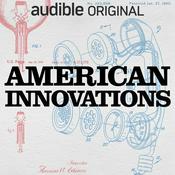Moore's Lobby: Where engineers talk all about circuits
All About Circuits

Latest episode
97 episodes
- In this episode of the Moore's Lobby podcast, we sit down with Antonio Di Vaira, Senior VP for Power Product of Schneider Electric to discuss the massive shifts happening in the world of energy distribution. The conversation kicks off by exploring how the explosive growth of electric vehicles and energy-hungry technologies like AI are pushing traditional power grids to their breaking point. He also explains that while building out new grid capacity is part of the long-term solution, the industry needs ways to sustain this growth in the short term.
This sets the stage for a deep dive into microgrids. Di Vaira breaks down how intelligent software is needed to manage the complex orchestration between sources and loads.
The discussion also explores the exciting potential of native DC (direct current) power distribution. As more sources (like solar panels) and loads (like EVs and data centers) are native to DC, creating dedicated DC microgrids can offer significant gains in efficiency and simplicity.
The episode concludes with a look at the future of the industry. Di Vaira emphasizes the need for engineers to adopt a multidisciplinary mindset and the critical importance of staying customer-centric to drive true innovation.
Meet Antonio Di Vaira
Antonio Di Vaira is the Senior VP for Power Products in North America, Mexico, and Central America at Schneider Electric. He oversees strategy, R&D, market development, and go-to-market for the ANSI, NEMA, and LV portfolio, including Services.
He previously spent over 20 years at ABB in global and local leadership roles across R&D, product management, M&A, and supply chain. Antonio holds a master's in computer engineering from the University of Pavia. - Technologists and leaders will be interested in hearing Mike explain how 3M's R&D culture that emphasizes collaborative problem-solving. They continue to leverage their "15% time" philosophy to fosters creative solutions that are being applied to our rapidly electrifying world.
If you're passionate about how fundamental material science is enabling breakthrough innovation in the electrical engineering world, this is an episode you don't want to miss. :
-The Surprising Role of Adhesives and Tapes: A look at how 3M's advanced materials are critical components in everything from wind turbines to EV battery packs and motors.
-Solving Thermal Runaway in Batteries: An engineer's perspective on the challenge of preventing cell-to-cell propagation during thermal runaway and the novel materials being designed to maintain electrical insulation at extreme temperatures.
-Innovations in Electric Motor Design: A discussion on the latest trends to boost motor efficiency and simplify manufacturing, including advanced cooling strategies and the development of an expandable slot liner that incorporates adhesive.
-Digital Twins and the R&D Cycle: How simulation and digital twins are used to model complex, chaotic events like thermal runaway, significantly reducing the development and iteration time for new technologies. - Dr. Mital Kanabar is the Senior Director of Innovation, Grid Automation, Grid Solutions at GE Vernova. He joins our podcast to discuss the explosive electricity demand driven by electric vehicles, AI data centers, and the general electrification of industries. This increased demand puts a strain on an aging infrastructure, necessitating new solutions to ensure a reliable and resilient power supply.
Check out this engaging conversation that touches on a number of important topics, including:
Decarbonization and Green Electrons: The push to generate electricity from renewable sources like wind, solar, and nuclear power to reduce carbon emissions.
Software-Defined Automation: The shift from rigid, hardware-based grid control to flexible, software-driven systems like GE Vernova's GridBeats platform, which uses AI and machine learning.
Bi-Directional Power Flow: The concept of "prosumers," where consumers of electricity, such as electric vehicle owners, can also supply power back to the grid.
Cybersecurity in the Digital Grid: The increasing importance of protecting the power grid from cyberattacks as it becomes more digitized and interconnected. - Christopher Savoie, the founder and CEO of Zapata Computing, has had a fascinating career journey. After beginning as a young programmer working with early computers, he switched gears to immunology and biophysics in Japan and is now founding AI companies. Along the way, he was also involved in creating the foundational technology for Apple Siri, working on early language models embedded in agents to solve complex natural language problems.
In this interview with our host, Daniel Bogdanoff, Savoie highlights the evolution of AI into specialized systems. Like an orchestra, small, task-specific models working in ensembles are more effective than large, monolithic ones.
He also shares how AI transforms automotive, motorsports, and grid management industries. Savoie recounts his experiences at Nissan with predictive battery analytics and Andretti Autosport, where AI-driven simulations optimize race strategies.
Savoy warned about the potential misuse of AI and big data, advocating for ethical considerations, especially around privacy and government control. Despite these challenges, he remains optimistic about AI's potential, expressing a desire for tools to handle complex personal organization tasks, such as multi-modal time and travel management. Creating Next-Gen Microcontroller Developer Tools and Equipping the People Who Use Them
2025/4/22 | 49 mins.In this interview, our Moore's Lobby host, Daniel Bogdanoff, chats with Rodger Richey, Vice President of Development Tools and Academic Programs at Microchip Technology. Rodger shares how his passion for engineering began with childhood curiosity, dismantling and repairing devices like a microwave. Those early hands-on experiences laid the foundation for his electrical engineering career, which started with designing underwater electronics for the U.S. Navy.
Rodger discusses the evolution of development tools and the growing complexity of embedded systems over his 30-year tenure at Microchip. He emphasizes the importance of creating accessible and user-friendly tools, such as IDEs and development boards, to help developers tackle increasingly sophisticated projects. The integration of AI into development workflows is a major milestone, enabling enhanced productivity and better debugging.
Rodger also highlights his involvement in academia, spearheading initiatives like virtual internships and hands-on learning programs to better prepare students for industry roles. By providing real-world tools and fostering collaboration, these programs aim to bridge the gap between theoretical education and practical application.
Rodger attributes his longevity at Microchip to its strong values, collaborative culture, and dedication to innovation, which have remained consistent even as the company has grown significantly.
More Science podcasts
Trending Science podcasts
About Moore's Lobby: Where engineers talk all about circuits
Our Moore's Lobby Podcast serves an elite global audience of engineers, technologists, and executives with a goal to educate, empower, and entertain. We discuss the technologies and engineering behind the hottest industry trends as host Daniel Bogdanoff guides you through the human stories behind the world's most inspiring organizations and leaders. Tune in monthly for new episodes.
Podcast websiteListen to Moore's Lobby: Where engineers talk all about circuits, The Naked Scientists Podcast and many other podcasts from around the world with the radio.net app

Get the free radio.net app
- Stations and podcasts to bookmark
- Stream via Wi-Fi or Bluetooth
- Supports Carplay & Android Auto
- Many other app features
Get the free radio.net app
- Stations and podcasts to bookmark
- Stream via Wi-Fi or Bluetooth
- Supports Carplay & Android Auto
- Many other app features


Moore's Lobby: Where engineers talk all about circuits
Scan code,
download the app,
start listening.
download the app,
start listening.


































